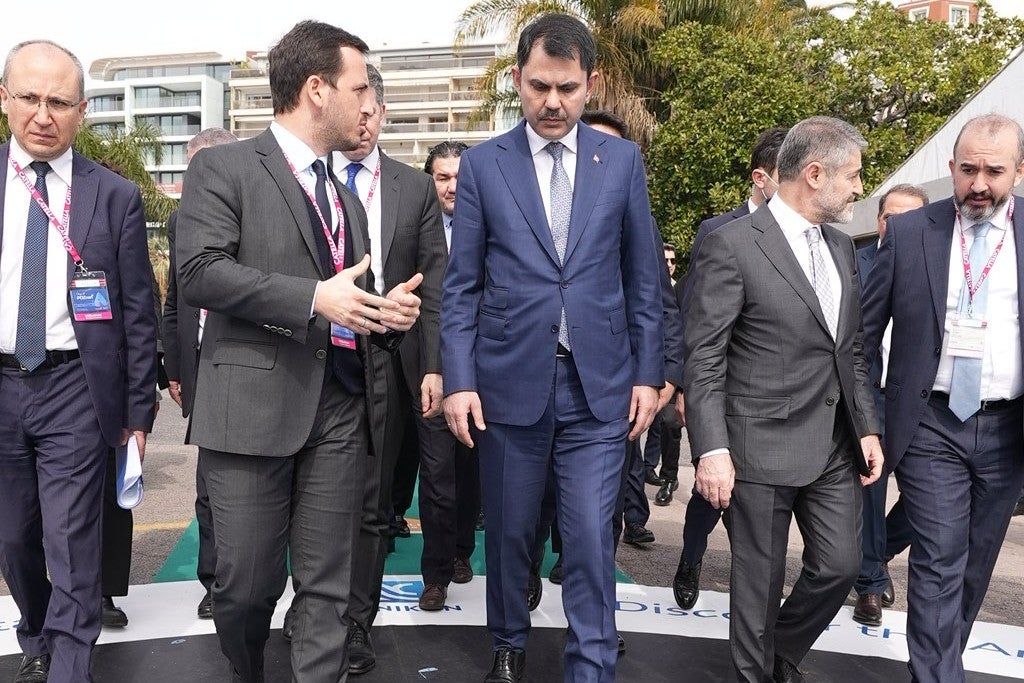
Turkish government officials are urging investors to focus on renewables opportunities in the country (which announced in December 2021 it was changing its official name in English to Türkiye and is applying to the UN to be recognised as such) as it rolls out a series of initiatives to support the sector.
During the MIPIM 2022 international real estate fair in Cannes in mid-March, Minister of Environment, Urbanisation and Climate Change Murat Kurum told Investment Monitor that the government has set a net-zero target for 2053 and has streamlined the theme of sustainability across various ministries.
“The government has set a sustainability and green development net-zero target by 2053 and added the ‘climate change’ label to the Minister of Environment and Urbanisation to highlight its commitment,” Kurum said.
The minister explained that a coordination board has been set up bringing together all ministries in order to harmonise their efforts to support the government’s green agenda.
“We are working on a road map and we are going to publish a report by the end of the year, which will provide guidance to each ministry and government department to work towards the net-zero goal of 2053,” he added.
Kurum also said that the goal is to invest and provide incentives for sustainable investment in both the private and public sector.
“This is an area that I would urge investors to focus on, going forward,” he added. “To support the transition to renewables, the government is going to create a system to sanction those companies that produce emissions and to support those who work towards cutting them.”
A move towards renewable resources
Incentivising investment in micro-mobility and the use of renewables resources in the manufacturing industry is also part of the government agenda.
Attracting foreign direct investment is going to continue being a priority for Turkey, said Minister of Treasury and Finance Nureddin Nebati.
“The energy, chemical and renewables industries are going to be our focus in order to increase exports and reduce imports, and we are going to provide incentives to draw investors from abroad,” he told Investment Monitor.
Nebati said that the government will work with investors to align priorities and added that a $15bn (Tl220.43bn) tourism investment incentive package is going to be announced in June as part of that effort.
Real estate and logistics opportunities
MIPM also saw the launch of Turkish real estate platform GYODER’s report titled Spatial Revisit: Emerging Areas of Real Estate Investment in Turkey.
The report, which was presented alongside consultancy PwC, highlighted that booming e-commerce; the recovery of tourism after the pandemic; higher exports; investment in regional development; investor-friendly incentives; new ways of working; and sustainability and ESG “are all coming to the forefront of the national policy agenda and will be critical to attracting international investment to the country”.
Mehmet Kalyoncu, chairman of GYODER, said: “Changing geopolitics always brings new opportunities. Turkey is in the centre of new global trade routes and global energy corridors, which brings global players’ attention to infrastructure, energy, logistics sectors as well as real estate. As GYODER we are here to cooperate and support international investors with finding opportunities and realising them.”
The Turkish real estate sector is benefitting from large infrastructure investments in the Marmara Region, the report also said.
“Istanbul Airport – which became the busiest in Europe last year – Istanbul underground network, Third Bosphorus Bridge, North Marmara Highway, Istanbul-Izmir Highway and Marmaray and Eurasia Tunnels, have created high potential for real estate development,” the report said.
The logistics market in Turkey is ranked as the highest investment prospect, according to PwC.
“The country’s logistics and warehouse sector is expected to receive a significant boost due to its strategic location and low rental costs, with warehouse area rental activities increasing by 12% in the last quarter of 2021 compared to the previous year and amounting to approximately 54,156 sqm. As a result of supply chain shortages, increased demand for qualified warehouses, and limited supply, primary rents increased by 16% on the previous year.”
Major logistics companies such as DHL, CEVA, FedEx and UPS are already benefitting from the myriad opportunities offered by relocation to Turkey, the report also said.



